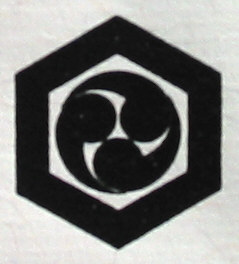
JAPANESE PRINTS
A MILLION QUESTIONS
TWO MILLION MYSTERIES
Ukiyo-e Prints浮世絵版画 |
|
Port Townsend, Washington |
|
TSUKIOKA YOSHITOSHI |
|
月岡芳年 |
|
つきおかよしとし |
|
1839-1892 |
|
TITLE: Ehon Tsūzoku Sangokushi |
| An Illustrated Popular History of the Three Kingdoms |
|
絵本通俗三国志 |
|
えほんつうぞくさんごくし |
|
Volume One |
|
DATE: 1883 |
| Meiji 16, 8th Month, 27th Day |
| 明治十六年八月二十七日 |
|
SIZE: 8 5/8" x 5 7/8" x 1/2" |
|
|
|
SOLD! |
|
47 double pages of text 15 black and white half page illustrations 2 full page color illustrations 1 color fold-out map of the Three Kingdoms |
|
|
|
|
|
The figure on the right (in the middle) is the Chinese general Guan Yu (関羽). In Japan he is referred to as Kan'u (かんう).
The figure at the top is Liu Bei (劉備) - Ryūbi (りゅうび) in Japanese. In the Chinese version he is first described as tall with long ear lobes which hung down to his shoulders. His "...hands hung down below his knees. His eyes were very big and prominent so that he could see backward past his ears. His complexion was as clear as jade, and he had rich red lips." [Translation by Brewitt-Taylor in the 1920s.] After valiant service Liu was not promoted so a court official spoke to the emperor on his behalf: "The Yellow Scarves rebelled because the eunuchs [at court] sold offices and bartered ranks. There was employment only for their friends, punishment only for their enemies. This led to rebellion. Wherefore it would be well to slay the Ten Eunuchs and expose their heads and proclaim what had been done throughout the whole empire. Then reward the worthy. Thereby the land would be wholly tranquil."
The fellow in the lower left is Zhang Fei (張飛) referred to as Chōhi (ちょうひ) in Japanese. He joins with Liu Bei to fight the rebels. When Liu first sees him Zhang is described as having "...a loud bass voice and looked as irresistible as a dashing horse." |
|
IF ABRAHAM LINCOLN WAS GAY AND PABLO PICASSO SHARED HIS BED WITH HIS ROOMMATE THEN WHY NOT LIU BEI? |
|
|
|
First off I have to tell you that I think all of this speculation is a crock of... It is revisionist thinking - a polite term for what I really have in mind - to imply that our 16th president was gay. This discussion has been the rage among certain advocates/detractors. In 1988 Arianna Huffington set out to single handedly destroy the reputation of Pablo Picasso in her Picasso: Creator and Destroyer. She implied that the painter had a homosexual relationship with a friend because he shared a bed with him early in the 20th century. However, one review of that book - I believe it was in the New York Times - said that strictly speaking this was true. What Huffington left out was that one of them slept in the bed during the day and the other one at night. They traded off. They weren't in it at the same time. Picasso was not a nice man - especially the way he treated the women in his life - but...
Now there is a book by Bob Hodge and Kam Louie, The Politics Of Chinese Language And Culture: The Art of Reading Dragons, published in 1998 in which the authors state that Liu Bei was "arrogant, militant, macho, [and] unapologetic..." and that he shared his bed with his companions. Well...this is true. It says in the "Romance of the Three Kingdoms" that Liu "...lived in harmony [with Guan Yu and Zhang Fei], eating at the same table and sleeping on the same couch." But yeesh! Give me a break. Surely everyone isn't Achilles and Patroculus with an extra Patroculus thrown in for good measure. However, just to be sure maybe we should consult Reverend Fallwell. Remember him? He outed Tinky Winky. Surely he could tell us something about Liu Bei. |
|
|
|
|
|
The figure at the bottom is Sun Jian (孫堅). His Japanese name is Bundai (ぶんだい). Sun is described as a "...general with a broad open face, a body as an alert tiger's, and a torso as a lofty bear's." He fought on the Imperial side with Liu Bei against the Yellow Scarves Rebellion.
The fellow at the top with the wild look and the sword between his teeth is Zhang Jue (張角). After Zhang Jue died his bodied was exhumed by his enemies and was then beheaded. After a while his head was sent to the capital.
The fellow with the spear wearing the helmet surmounted by a bird is Yuan Shao (袁紹) who is called Enshō (えんしょう) in Japanese. |
|
"An Illustrated Popular History of the Three Kingdoms" is a Japanese version of a Chinese classic "Romance of the Three Kingdoms" (三國演義) written in the 14th century and attributed to Luó Guànzhōng. Set during the late Han period the three kingdoms are warring Chinese states.
Translated into Japanese in 1689 by Konan Bunzan (湖南文山 or こなん.ぶんざん). A new version by Ikeda Touritei (池田東籬亭 or いけだ.とうりてい) appeared in early nineteenth century under the present title. An 1836 edition was illustrated by Taito II one of Hokusai's students. |
|
|
|
|
|
Volume one has two full sheet color prints and 15 black and white half-page ones. Above and below are seven such examples. |
|
|
|
|
|
|
|
|
|
|
|
Zhang Jue (張角: also known as Zhang Jiao - Japanese name: Chōkaku - ちょうかく) receives from an old man with a wooden staff the three heavenly scrolls entitled "The Essential Arts of Peace". Within these scrolls is the formula for the salvation of humanity, but only if adhered to with total single-mindedness. |
|
|
|
The Zhang brothers led the Rebellion of the Yellow Scarves - sometimes referred to as turbans. The brothers had mystical powers to control the elements which they employed for use against their enemies. Here the one astride the horse has called forth the windstorm create supernatural affects. Hollywood couldn't do any better. |
|
|
|
A drunken Zhang Fei thrashing the Imperial representative because of his poor treatment of Liu Bei - Zhang's friend and superior. |
|
|
|
I believe this represents the meeting between the Empresses Dong and He - their Chinese names. "In the middle of the feast, when all were well warmed with wine, Empress He rose and offered a cup to her guest, saying, 'It is not fitting that we two should meddle in state affairs. In the beginning of the Han Dynasty, when Empress Lu laid hands upon the government, all her clans were put to death. We ought to remain content, immured in our palaces, and leave state affairs to the state officials. That would be well for the country, and I trust you will act thus.'" |
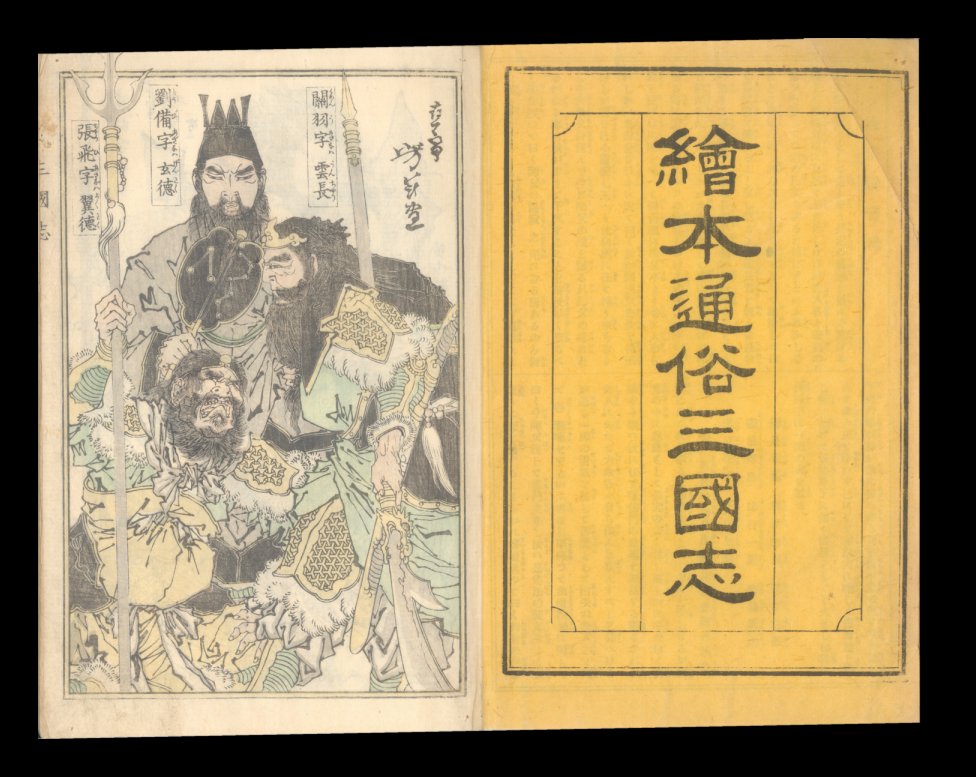
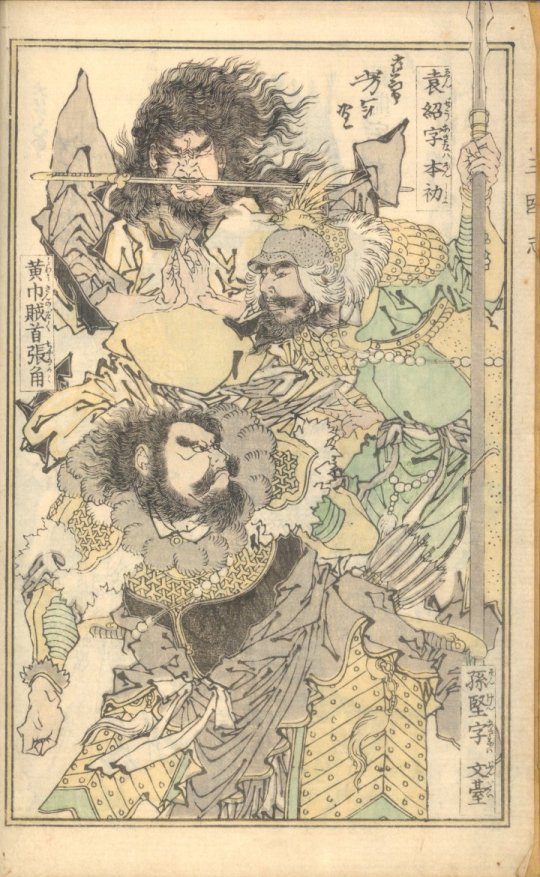
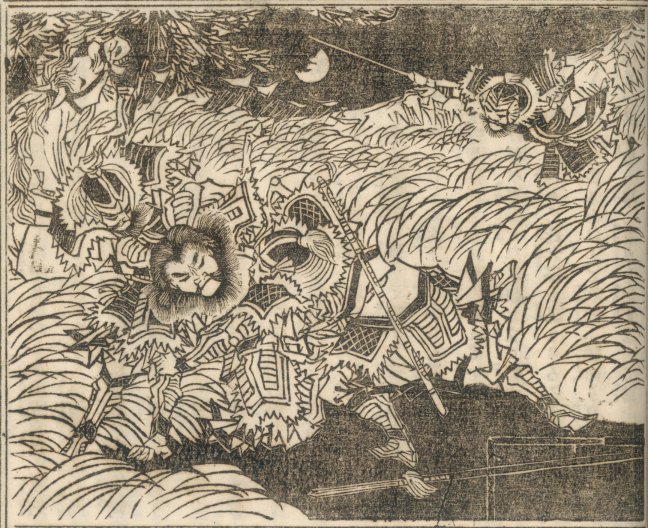
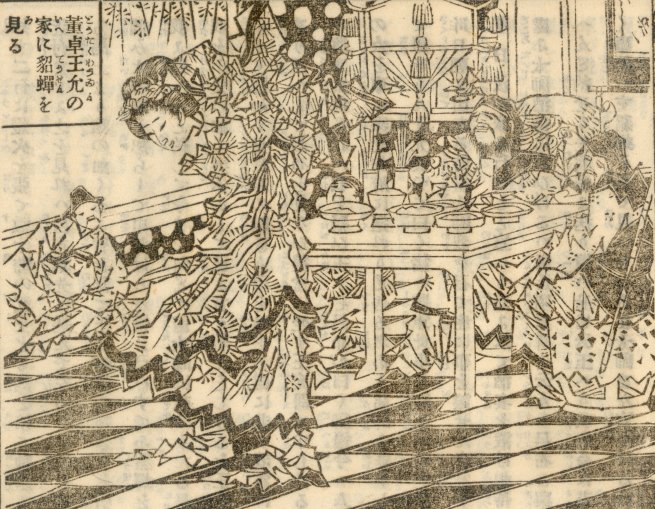
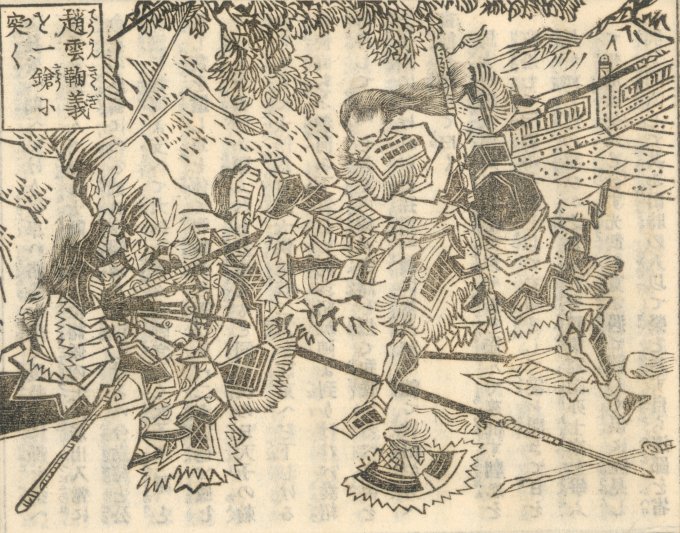
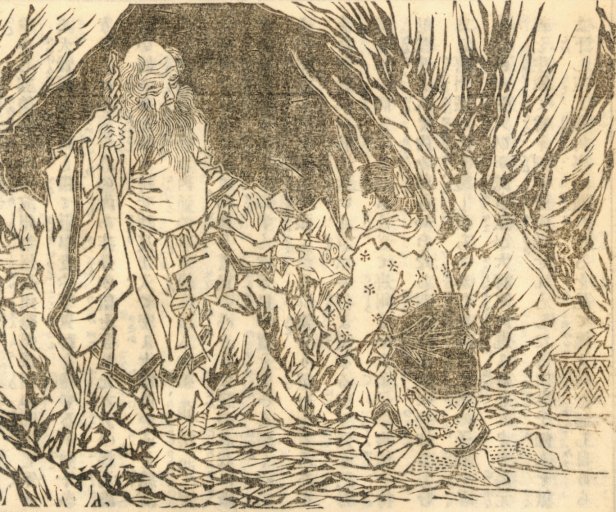
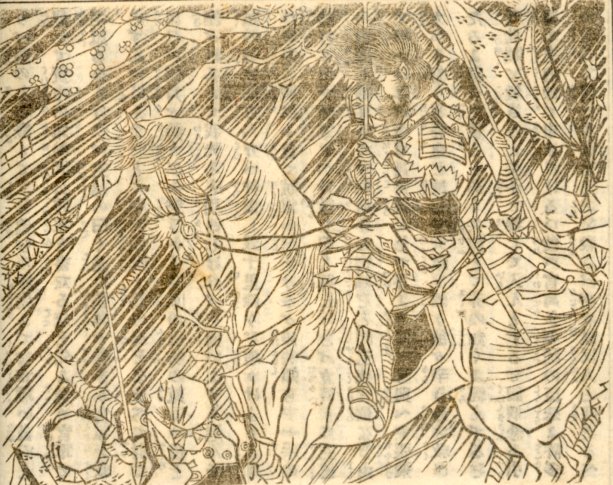
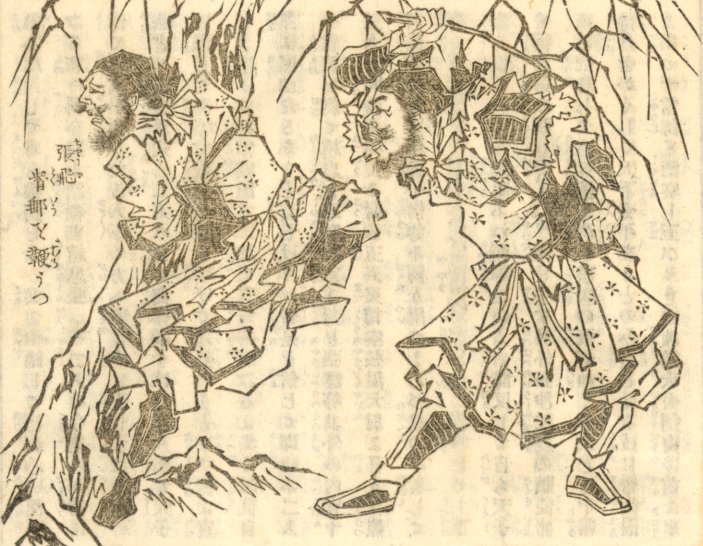
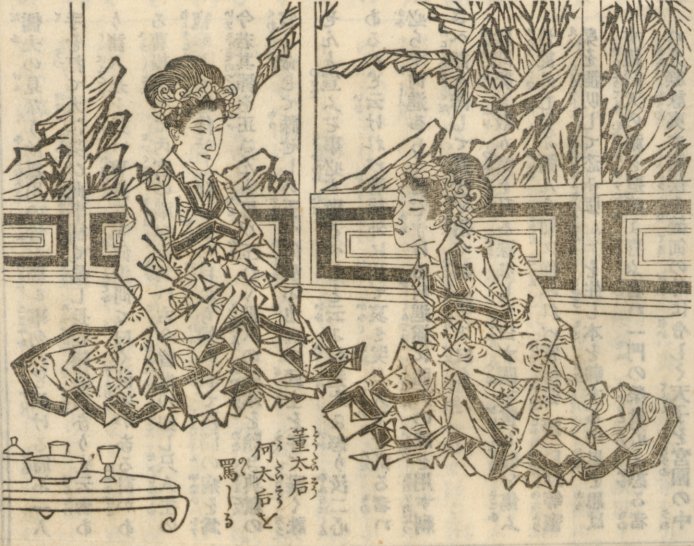
 HOME
HOME